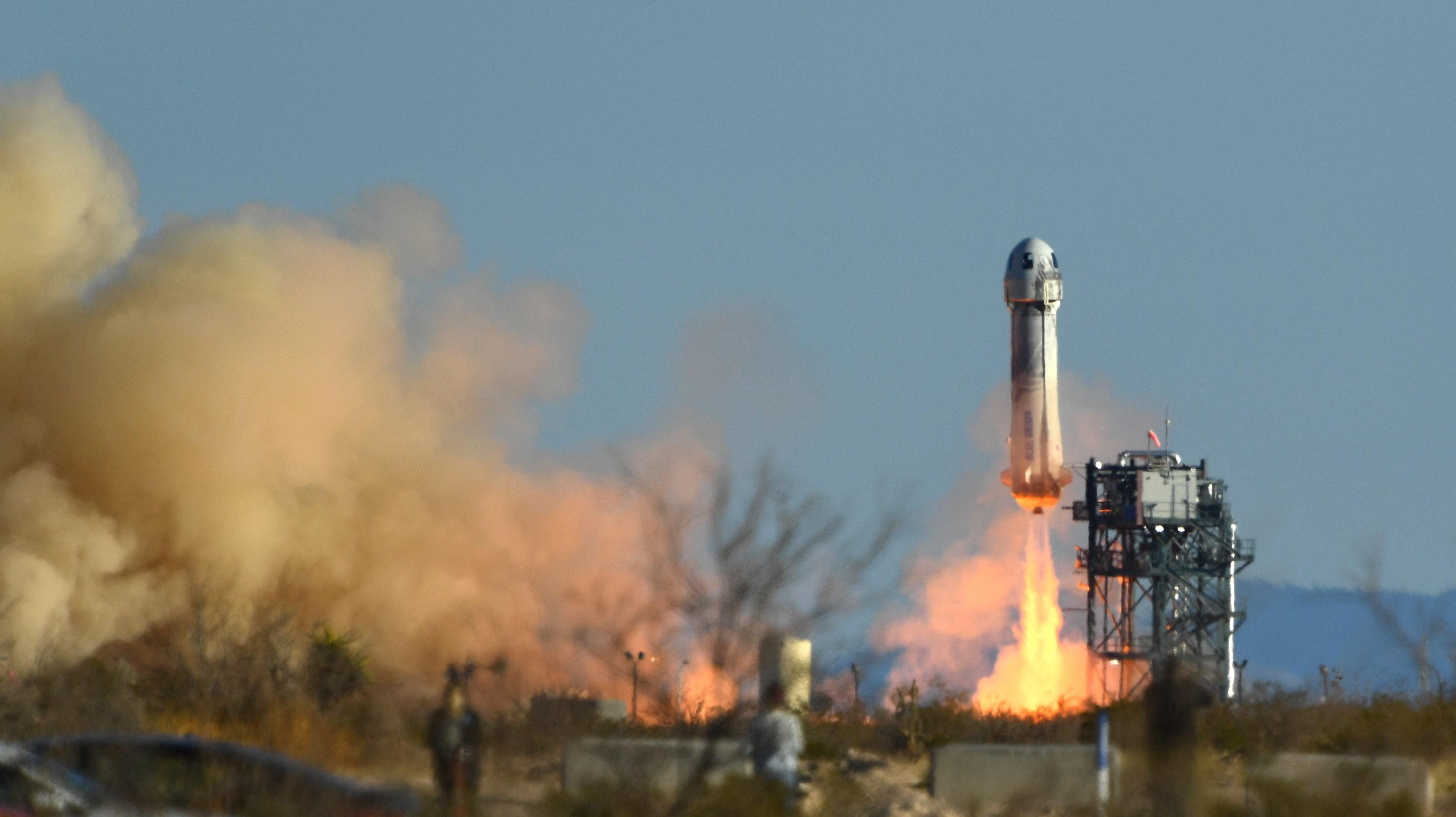Bezos' Blue Origin Rocket Suffers Booster Failure During Launch
The freight-only flight safely jettisoned its cargo capsule filled with 36 scientific experiments.
Spaceflight is extraordinarily difficult, even when you remove the risks associated with having a crew onboard. NASA still hasn't been able to conduct the launch for Artemis 1 after two fuel leaks scrubbed the scheduled launch attempts. Launches haven't been any easier for private spaceflight companies, including Jeff Bezos' Blue Origin. Yesterday, a Blue Origin rocket suffered an engine failure just over a minute after lifting off.
Booster failure on today's uncrewed flight. Escape system performed as designed. pic.twitter.com/xFDsUMONTh
— Blue Origin (@blueorigin) September 12, 2022
NS-23 lifted off from Blue Origin's spaceport in West Texas on Monday morning. However, the 23rd mission for the New Shepherd launch system would come to a quick and sudden end. One minute and 5 seconds into the launch, the New Shepherd's booster flared unexpectedly. In response, the vehicle capsule's abort motor was fired, and the capsule was jettisoned away from the malfunctioning booster. The booster eventually crashed into the Earth's surface, while the capsule's parachutes deployed and the vehicle landed safely.
This New Shepherd mission was unmanned, and was tasked with carrying scientific payloads to the edge of space. According to Space.com, half of the 36 payloads belonged to NASA. Blue Origin later tweeted, "During today's flight, the capsule escape system successfully separated the capsule from the booster. The booster impacted the ground. There are no reported injuries; all personnel have been accounted for." It's not clear if any of the experiments aboard were damaged during the aborted flight.
This was the ninth flight for Booster-3, the oldest operational New Shepherd rocket booster. Blue Origin had not lost a rocket booster since the landing crash during NS-1 in 2015. Blue Origin operates two separate sets of capsule and rocket vehicles, one rated for human-crewed flights and the other for freight flights.
